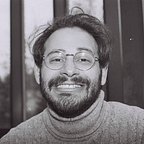Power is a Commodity, and We’ve Been Hoarding it for Too Long
Journalism can be about building and sharing collective power, but we have to be brave enough to do it.
Remember when during the 2008 presidential campaign, Barack Obama was described as a “community organizer”? The term was spoken with pejorative tones on the right, and reverence on the left for its connotation of grassroots glory. Obama said that being a community organizer was “the best education I ever had, better than anything I got at Harvard Law School.” The work that he did in Chicago’s South Side became central to the Obama ethos, and became instrumental to his campaign’s ability to build a diverse coalition from the ground up.
I bring up the former president because I was reminded of his work when I was in Red Hook this past weekend, attending a session of The City’s “Open Newsroom” at the Brooklyn Public Library. A huge chunk of Obama’s memoir “Dreams from My Father” is dedicated to his career as an organizer, around issues of housing, infrastructure, and poverty. In a small room at the back of the Red Hook library, I listened as members of the community worked through outlining the who/what/when/where/why/how of stories about public housing issues and worries about nutrition in local schools, and I became excited that an operation run by a journalistic enterprise was teetering on Obama-style community organizing.
Although I’m doubtful that it would ever be forthrightly admitted, The City’s initiative to make local news more collaborative is indeed an act of community organization. By involving members of the community in the creation of news, The City fundamentally shifts the nature of the relationship between journalists and residents of whichever neighborhood the story is about. Formerly, journalists determined what the story was, how it was told, and only used the community as sources of information in a transactional relationship. Now, journalists collaborate with the community as equal partners, making sure to tell the story in a way that is useful and productive for, and representative of, the people who live there.
Mike Rispoli, the director of the News Voices project at Free Press, expresses this differently; that journalists traditionally treat the communities that read, listen, or watch the news as passive consumers who create value for them through paying for a product. But now, journalists have the opportunity to actively engage communities as their constituents, with news and stories that invest in people. When journalists invest in communities, you can be sure that communities will invest in journalists.
You always hear the trope that the job of any honest and compassionate journalist is to “give voice to the voiceless.” A pandering statement at best, and a harmful one at worst. “We give more voice to the voiceful than to the voiceless,” says Aly Colón, Knight Professor in Journalism Ethics at Washington and Lee University. “We need to walk the streets of our communities. We need to see people. We need to hear them. We need to hear their voices.”
Rispoli says that journalism traditionally assumes that people do not inherently have power, but only have it when the journalist chooses to ‘empower’ an individual or a community. But through using methods of community organizing in our journalism, we can share and build collective power.
When The City works with residents of Red Hook to jointly create stories of issues in the neighborhood, they are creating and sharing power.
When Radical Health hosts meetings in Mott Haven to share stories of addiction and plan how to heal from them, they are creating and sharing power.
When a campaign brings everyday people into the political process to have a say in where their neighborhood, community, and country are going, they are creating and sharing power.
I’ve been taught that in journalism, listening is an act of power in and of itself. But, that can remain extractive without bringing the people that you’re listening to into the process of creating the news. We must move beyond listening to a state of activation, where wielding collective power creates a new journalism that does work with the voices that some would label ‘voiceless.’
If power is a commodity, it’s time to start sharing the wealth.
